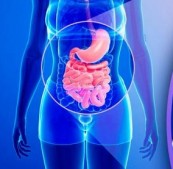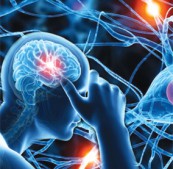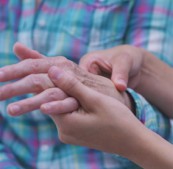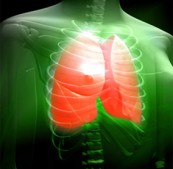Alzheimer’s Disease

Alzheimer's disease is a chronic neurodegenerative disease that usually starts slowly and worsens over time. The most common early symptom is difficulty in remembering recent events (short-term memory loss). As the disease advances, symptoms can include problems with language, disorientation (including easily getting lost), mood swings, loss of motivation, not managing self-care, and behavioral issues.
Stages of Alzheimer's Disease
Effects of ageing on memory but not Alzheimer's
- Forgetting things occasionally
- Misplacing items sometimes
- Minor short-term memory loss
- Not remembering exact details
Early-stage Alzheimer's
- Not remembering episodes of forgetfulness
- Forgets names of family or friends
- Changes may only be noticed by close friends or relatives
- Some confusion in situations outside the familiar
Middle stage Alzheimer's
- Greater difficulty remembering recently learned information
- Deepening confusion in many circumstances
- Problems with sleep
- Trouble knowing where they are
Late-stage Alzheimer's
- Poor ability to think
- Problems speaking
- Repeats same conversations
- More abusive, anxious, or paranoid
Signs & Symptoms (Lakshana)
Initial symptoms are often mistaken for normal ageing. Examination of brain tissue is needed for a definite diagnosis. The disease course is divided into four stages, with a progressive pattern of cognitive and functional impairment.
Pre-dementia
The most noticeable deficit is short term memory loss, which shows up as difficulty in remembering recently learned facts and inability to acquire new information.
Early
The increasing impairment of learning and memory eventually leads to a definitive diagnosis. In a small percentage, difficulties with language, executive functions, perception (agnosia), or execution of movements (apraxia) are more prominent than memory problems.
Moderate
Speech difficulties become evident due to an inability to recall vocabulary, which leads to frequent incorrect word substitutions (paraphasias).
Reading and writing skills are also progressively lost.
Advanced
Language is reduced to simple phrases or even single words, eventually leading to complete loss of speech. Despite the loss of verbal language abilities, people can often understand and return emotional signals. Although aggressiveness can still be present, extreme apathy and exhaustion are much more common symptoms. Muscle mass and mobility deteriorate to the point where they are bedridden and unable to feed themselves.
Causes (Nidan)
The cause of Alzheimer's disease is poorly understood. About 70% of the risk is believed to be genetic with many genes usually involved. Other risk factors include a history of Head injuries, Depression and Hypertension.
Ayurveda Aspect of Alzheimer’s Disease
It is said that Smritibhramsha can develop due to the consumption of unwholesome diet (dominant in Tamas & Rajas) and irregular physical activities which causes vitiation of Dosha affects the mind and body both and leads to Smritibhramsha. Dhatukshaya and Margavarodha are the cardinal aetiologies for the vitiation of Vata Dosha. The accumulation of protein can be understood as a collection of Aama at the cellular level.
Margavarodha may be caused by the formation of Aama precipitated by Vishamagni which was formed due to Vatadushti. Kaayagni is the end process of metabolism occurring in tissue level involving bio enzymes which determines the proper formation of Saara (nourishment) and Kitta (waste) in that level. The proper functioning of Vata in the cellular level will make use of nutrients for building tissues and removing wastes from the system. Vikruti of Kaayagni and Vata at the level of neurons is the cause of the production of Aama which leads to AD. This accumulation of waste as Aama which can be correlated with protein aggregation can disturb the equilibrium and leads to degenerative changes. This degeneration further vitiates Vata and it goes on in a vicious circle.
Treatments
In Ayurveda Alzheimer’s disease is considered as Yapya roga. Yapya roga means the disease which can be managed with Ayurvedic medicines and treatments are said to be yapya rogas. These types of diseases may be asadhya or incurable but the patient stays alive on the virtue of practising wholesome dietetic and lifestyle regimens.
Ayurveda can provide better relief if diagnosed and treated in the early stages of Alzheimer’s disease.
Panchakarma treatments are advisable for Alzheimer’s disease. Panchakarma is a Sanskrit word that means “five actions” or “five treatments”. This is a process used to clean the body of toxic materials left by disease, poor nutrition and environmental toxins. Normally the body has the innate ability to efficiently process and remove these waste materials, including the vitiated doshas. However, due to one’s repeated dietary indiscretions, poor exercise patterns, lifestyle, and genetic predisposition, the digestive enzymes, metabolic co-factors, hormones, and agnis which regulate the body’s internal homeostasis become disorganized. This can lead to the accumulation and spread of toxins throughout the physiology resulting in disease. This waste matter is called ama in Ayurveda. Ama is a foul-smelling, sticky, harmful substance that needs to be completely evacuated from the body.
Panchakarma will remove the excess doshas and correct imbalances in them as well as eliminate the harmful ama out of your system through the body’s own organs and channels of elimination (colon, sweat glands, lungs, bladder, urinary tract, stomach, intestines, etc). Panchakarma purifies the tissues at a very deep level.
Additional Treatment
Yoga and Meditation
Yoga and meditation may play a role in improving symptoms of Alzheimer’s disease. Performing to this brain forms new connections and recover from the injuries which had in the disease. Patients doing to this may find peace and feel happier, Yoga and meditation have the following benefits:
- Reverses memory loss
- Improves sleep quality
- Increases energy levels
- Downregulates inflammatory genes
- Improves psychological and spiritual well being
- Activates significant anatomical areas of the brain
Prevention
In Ayurveda, A regulated lifestyle, wholesome diet, appropriate behavior, and following ideal code of conduct as quoted in Ayurveda are best to prevent and manage the Neurodegenerative diseases in general and Alzheimer’s Disease (AD) in particular.





